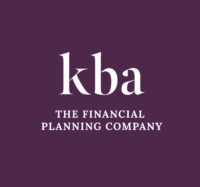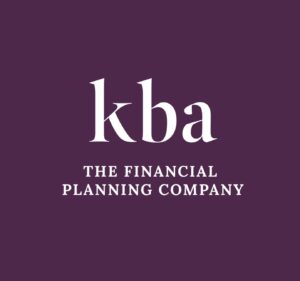The nights are drawing in and Halloween is upon us.
If you have children or grandchildren, you’ll have seen how Halloween has become a big deal in the UK. From creative costumes to trick-or-treat sweets, Brits now spend in the region of £400 million on the spooky holiday.
While some of us enjoy being spooked by watching a horror film, no-one likes being in a real horror story. So, here are five scary financial mistakes you should avoid this Halloween…
1. Hoarding too much cash
Many people often prefer the “safe haven” of holding their savings in cash. While this may feel like a safe choice because your capital is safe from risk, there’s a very high chance that inflation will erode the value of your savings over time.
A recent report from MoneyFarm found that over a third of investors keep 40% or more of their savings in cash. But this tactic may mean you’re missing out on potential growth.
With interest rates at an all-time low, it’s harder than ever to find a savings account that will pay a good rate of interest on your cash savings. If you look very hard, you may be able to get an interest rate of 1.8%, if you are prepared to lock your money away for three years.
In the very best-case scenario, the interest you could earn on £1,000 would add up to a measly £55.44 over three years. There are loads of online calculators like this online that can help you work out how much interest you’ll actually get from your savings and investments.
The chart below compares returns from cash, time deposits, and shares over the last 20 years. You can see that returns from UK shares have significantly outperformed the returns from cash savings.

Source: HL
Inflation coupled with low interest rates means that holding your money in cash may be a poor financial decision.
Meanwhile, investing in stocks and shares, over the medium or long term, could help you avoid the scary prospect of your money not growing in line with inflation. It could also give you a better chance of outperforming inflation and help you meet your financial goals.
Remember, the value of your investment can fall as well as rise and you may not get back the full amount you invested. Past performance is not a reliable indicator of future performance.
2. Paying too much tax on your savings
The Personal Savings Allowance means most people can earn interest on their savings without paying tax. However, if you have a significant amount of savings in cash (tut, tut – see point above), or you are an additional- or higher-rate taxpayer, you may have to pay tax on interest earned.
The Personal Savings Allowance allows basic-rate taxpayers to earn up to £1,000 in interest each tax year before tax is due.
If you’re a higher-rate taxpayer, you can earn £500 before getting a tax bill. Additional-rate taxpayers don’t benefit from the allowance at all.
If you exceed the allowance, you may need to pay additional Income Tax.
If you have cash savings earning interest that puts you over these limits, and you’re not making full use of your annual ISA allowance, you could be paying more tax than you need to.
An ISA, or Individual Savings Account, is a type of savings account that holds your money tax-efficiently. Any gains are free from Income Tax and Capital Gains Tax.
In the 2021/22 tax year, anyone aged 18 or over can contribute up to £20,000 into an ISA.
3. Failing to put the right protection in place
There’s nothing quite as scary as the idea of your loved ones facing financial hardship as a result of an unexpected problem. So, it’s important to make sure you have the right insurance in place in case the worst happens.
If you’re the primary earner, losing your income because of a health issue could devastate your life, and that of your family.
There are steps you can take to make sure you and your loved ones would remain financially secure if you were unable to work due to illness.
Consider getting critical illness cover or income protection. If you become too ill to work, these policies can provide a valuable financial safety net.
These insurance policies work in different ways according to the provider who issues them, and the premiums you pay. They are both designed to help you to pay your bills and stay on top of your mortgage while you recover.
4. Taking money out of your pension when you don’t need it
The number of people accessing their pensions without first seeking guidance or taking regulated advice is on the rise.
In the year 2019/2020, the number of people who accessed their defined contribution (DC) pension pots without advice rose by 8%. And figures from the Financial Conduct Authority (FCA) said that, in the same year, 673,831 DC pensions were accessed for the first time. They reported that 50% of these people did so without advice.
Taking funds from your pension pot before taking advice can lead to a variety of scary problems, including:
- If you withdraw more than a 25% lump sum, you could end up with a tax charge, or you could find yourself in a higher Income Tax bracket
- You could run out of money in later life if you withdraw too much and don’t plan ahead for what you may need in the future
- You could pay more in plan fees and charges if you don’t shop around
- Withdrawing from your pension before you need could see you miss out on the benefits of keeping your pension funds invested for longer.
There are various tax implications of pension withdrawals. These are based on your individual circumstances, tax legislation, and regulation, which are subject to change in the future.
Pensions can be complicated. Planning to make sure you have adequate income in retirement is important.
If you’re approaching retirement and wondering what to do with your retirement savings and how to structure your pension income, speak to a professional first. A financial adviser or planner can discuss your options and help you make the right decisions.
5. Delaying writing your will or planning how to pass on your wealth
Halloween is a holiday dedicated to remembering the dead. It may be ghoulish to consider our own demise, but if you haven’t yet written your will, or considered how you will pass your wealth on to your loved ones, now is as good a time as ever to start putting some plans in place.
According to Will Aid, only half of UK adults have written their will. If you’re one of the 50% without a will, it’s time to rectify this.
Writing your will should be one of your top financial priorities. If you already have a will, it’s a good idea to revisit it occasionally to make sure it still reflects your wishes.
If you die without a will, or “intestate”, you have no say over what happens to your estate. Your assets are distributed according to the rules of intestacy, which do not take your wishes into account.
Spend the time making a will now to ensure your money and other valuable assets end up in the right hands when you die.
It’s even more important to have a plan in place if your estate could be liable for Inheritance Tax (IHT). There are things you can do to reduce an IHT bill, but you’ll need to take the right steps before you pass away.
Get in touch
If you want to discuss how you can protect yourself and your family from making scary financial mistakes, get in touch. Email us at contactme@kbafinancial.com or call us on 01942 889883.
Will writing is not part of the Openwork offering and is offered in our own right. Openwork Limited accept no responsibility for this aspect of our business. Will writing is not regulated by the Financial Conduct Authority.


